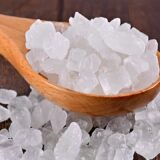Monsoon Healthcare Guide: Tips and Diet for a Strong Immune System
Monsoon is a time of rejuvenation and joy, but it also brings its share of health challenges. The increased humidity and dampness can make us susceptible to various illnesses. However, with the right healthcare tips and a well-planned diet, you can stay in optimal health throughout this season. 
In this article, we will explore essential monsoon healthcare tips and a diet plan to keep you healthy and fit, allowing you to fully embrace the magic of the rainy season.
Monsoon Healthcare Tips
As the monsoon season sets in, it brings with it a unique set of health challenges. To stay well and enjoy the rainy weather to the fullest, it’s crucial to prioritize your health with some essential monsoon healthcare tips.
1. Stay Hydrated, Always!
During the monsoon season, the weather may not leave you feeling as thirsty as it does on hot summer days, but staying hydrated remains essential. Adequate hydration is crucial for your overall well-being, and it offers several benefits, particularly during rainy weather. Here’s why you should prioritize hydration and some tips to help you stay well-hydrated during the monsoon:
1. Flush Out Toxins: Drinking ample water helps flush out toxins from your body, ensuring your organs function optimally. It aids in maintaining a healthy digestive system and supports kidney function.
2. Boost Your Immune System: Hydration plays a key role in supporting your immune system. Water helps transport nutrients to your cells and facilitates the removal of waste products, contributing to better immune function.
3. Keep Your Skin Glowing: Proper hydration keeps your skin moisturized and radiant. It helps combat dryness and dullness, common skin concerns during the monsoon.
4. Soothe Your Body: While water is the best choice for hydration, warm beverages like herbal teas and soups can also be comforting during the rainy weather. Herbal teas, such as chamomile and peppermint, can have additional health benefits, including relaxation and soothing effects.
Now that you understand the importance of staying hydrated, here are some tips to help you maintain optimal hydration during the monsoon:
1. Carry a Water Bottle: Keep a water bottle with you wherever you go. Having it readily available will remind you to take sips throughout the day.
2. Set Reminders: If you tend to forget to drink water, set reminders on your phone or computer to prompt you to hydrate at regular intervals.
3. Infuse Water with Fruits: If plain water isn’t enticing enough, add slices of fresh fruits like lemon, cucumber, or berries to infuse the water with natural flavors.
4. Monitor Urine Color: Check the color of your urine as an indicator of hydration. Pale yellow or straw-colored urine suggests proper hydration, while dark yellow indicates the need to drink more water.
5. Limit Caffeine and Alcohol: Caffeinated beverages and alcohol can contribute to dehydration, so consume them in moderation and balance with sufficient water intake.
Note: Remember, even if you don’t feel excessively thirsty during the monsoon, it’s essential to drink enough water throughout the day. By staying hydrated, you can optimize your health, boost your immune system, and enjoy the rainy season to the fullest.
2. Protect Yourself from Mosquito-Borne Diseases
During the monsoon season, stagnant water becomes a breeding ground for mosquitoes, making it easier for them to spread diseases like dengue and malaria. To safeguard yourself from these illnesses, follow these essential tips:
1. Use Mosquito Repellents: Apply mosquito repellent creams or sprays on exposed skin to keep these pesky insects at bay. Look for products that contain DEET or picaridin for effective protection.
2. Wear Long-Sleeved Clothing: When venturing outdoors, especially during the early morning and evening, wear long-sleeved shirts and pants to minimize skin exposure to mosquitoes.
3. Keep Surroundings Clean: Mosquitoes breed in stagnant water, so ensure that there are no open containers, puddles, or waterlogged areas near your home. Regularly empty and clean containers that can hold water, such as flower pots, buckets, and discarded tires.
By following these preventive measures, you can significantly reduce the risk of mosquito-borne illnesses and enjoy a healthy monsoon season.
3. Boost Your Immune System
Your immune system plays a crucial role in protecting your body from infections and illnesses. To ensure it’s at its best during the monsoon season, focus on boosting your immunity with these dietary tips:
1. Consume Vitamin-Rich Foods: Vitamins are essential for a strong immune system. Incorporate foods rich in vitamin C, such as citrus fruits like oranges, lemons, and grapefruits. These fruits not only provide a refreshing taste but also deliver a powerful dose of antioxidants.
2. Include Leafy Greens: Leafy green vegetables like spinach, kale, and Swiss chard are packed with nutrients like vitamins A, C, and K, along with essential minerals. They contribute to building a robust immune system.
3. Add Bell Peppers to Your Diet: Bell peppers, whether red, green, or yellow, are excellent sources of vitamin C and other antioxidants. They not only enhance the taste of your meals but also help fortify your body’s natural defense mechanisms.
By incorporating these immune-boosting foods into your diet, you can strengthen your body’s ability to fight off infections and stay healthy and fit throughout the monsoon season.
4. Practice Good Hygiene
The monsoon season brings with it increased bacterial and viral activity, making it essential to prioritize good personal hygiene. Follow these hygiene practices to protect yourself and others from illnesses:
1. Frequent Handwashing: Wash your hands regularly with soap and water for at least 20 seconds, especially before eating, after using the restroom, and after coming in contact with public surfaces. Handwashing is one of the most effective ways to prevent the spread of germs.
2. Avoid Touching Your Face: Your hands come into contact with numerous surfaces throughout the day, making them potential carriers of germs. Avoid touching your face, especially your eyes, nose, and mouth, as this can provide a pathway for germs to enter your body.
3. Cover Your Mouth and Nose: When coughing or sneezing, use a tissue to cover your mouth and nose. If a tissue is not available, use the crook of your elbow. This practice helps prevent the spread of respiratory droplets containing germs.
4. Maintain Clean Surroundings: Regularly clean and disinfect frequently touched surfaces in your home, such as doorknobs, light switches, and electronic devices. Keeping your surroundings clean reduces the chances of germs lingering on surfaces.
5. Personal Grooming: Maintain personal grooming habits, including regular bathing and washing your hair, to keep yourself clean and fresh during the monsoon.
By practicing good hygiene, you can significantly reduce the risk of infections and create a safer environment for yourself and those around you during the rainy season.
5. Exercise Indoors
Just because it’s raining outside doesn’t mean you have to sacrifice your fitness routine. Embrace indoor exercises to stay active and physically fit during the monsoon season. Here are some fantastic indoor workout options:
1. Yoga: Practicing yoga indoors provides an excellent opportunity to focus on both your physical and mental well-being. The gentle stretches, poses, and controlled breathing can help you stay centered and relaxed even during gloomy weather.
2. Pilates: Pilates is a low-impact exercise that targets your core muscles, improves flexibility, and enhances body alignment. It’s a fantastic option for those looking to tone their muscles and improve posture without stepping outside.
3. Bodyweight Workouts: You don’t need fancy equipment to get a good workout. Bodyweight exercises like push-ups, squats, lunges, and planks can be done indoors and provide an effective way to strengthen your muscles.
4. Dance Fitness: Turn up the music and get your heart pumping with a fun dance fitness session. Dancing not only burns calories but also lifts your spirits, making it an enjoyable way to stay active during rainy days.
5. Indoor Cycling or Jump Rope: If you have a stationary bike or a jump rope at home, use them to get your heart rate up and work on your cardiovascular fitness indoors.
Exercising indoors not only keeps you dry and comfortable but also ensures consistency in your fitness routine. So, don’t let the rain dampen your motivation—embrace indoor exercises and maintain your physical fitness throughout the monsoon season.
6. Embrace Herbal Remedies
During the monsoon season, when common ailments like cold, cough, and indigestion are prevalent, turning to herbal remedies can offer effective relief. Ayurveda and herbal remedies have been used for centuries to address various health issues. Here are some natural remedies to consider during the rainy season:
1. Ginger Tea: Ginger is well-known for its therapeutic properties, particularly in alleviating cold and cough symptoms. Prepare a soothing cup of ginger tea by boiling fresh ginger slices in water. Add a dash of honey and a squeeze of lemon for added flavor and extra benefits.
2. Tulsi (Holy Basil): Tulsi leaves have powerful antiviral and antibacterial properties, making them excellent for boosting immunity and combating respiratory infections. You can chew fresh tulsi leaves or steep them in hot water to make a comforting herbal tea.
3. Turmeric Milk: Turmeric is a potent anti-inflammatory spice that can help relieve joint pain and boost immunity. Mix a teaspoon of turmeric powder in a warm glass of milk, and add a pinch of black pepper to enhance its absorption.
4. Ajwain (Carom Seeds) Water: Ajwain water is beneficial for indigestion and bloating. Boil a teaspoon of ajwain seeds in water, strain, and drink it warm. It can provide quick relief from digestive discomfort.
5. Honey and Cinnamon: A combination of honey and cinnamon has been traditionally used to soothe sore throats and ease coughs. Mix a teaspoon of honey with a pinch of cinnamon powder and take it before bedtime for a comforting remedy.
6. Aloe Vera: Aloe vera gel is excellent for treating skin irritations caused by fungal infections or allergies that may occur during the monsoon. Apply fresh aloe vera gel to affected areas for soothing relief.
While embracing herbal remedies, it’s essential to remember that individual reactions may vary, and it’s always best to consult with a healthcare professional if you have any specific health concerns or medical conditions. Incorporating these natural remedies into your routine can help you stay well and enjoy the beauty of the rainy season.
Monsoon Diet Plan to Be Healthy and Fit
During the monsoon season, maintaining a healthy diet is essential to fortify your body against seasonal ailments and stay fit. Embrace the abundance of seasonal fruits and vegetables available during this time, as they are rich in vitamins and antioxidants that boost your immune system.
1. Incorporate Seasonal Fruits and Vegetables
The monsoon season brings with it a variety of delicious and nutritious seasonal fruits and vegetables. Embrace these fresh produce options to enhance your diet and boost your immunity. Here are some nutrient-rich choices to consider:
1. Apples: An apple a day keeps the doctor away, and this holds true during the monsoon as well. Apples are rich in fiber, vitamins, and antioxidants, making them a perfect snack to support your overall health.
2. Pears: Pears are another excellent choice of seasonal fruit during the rainy season. They are packed with essential nutrients and provide a natural sweetness to satisfy your cravings.
3. Spinach: Spinach is a leafy green vegetable abundant during the monsoon. It is a nutritional powerhouse, loaded with iron, calcium, and vitamins A and C. Incorporate spinach into your meals to boost your energy levels and support your immune system.
4. Fenugreek Leaves: Fenugreek leaves, also known as methi, are widely used in Indian cuisine and offer numerous health benefits. They are a rich source of iron, magnesium, and dietary fiber, aiding in digestion and promoting overall well-being.
5. Bitter Gourd (Karela): Bitter gourd is a unique vegetable with exceptional health benefits. Despite its bitter taste, it is high in vitamins and minerals, including vitamin C and potassium, which help regulate blood sugar levels and improve immunity.
6. Pomegranates: Pomegranates are a delightful and vibrant fruit abundant during the monsoon. They are packed with antioxidants, which play a significant role in supporting your body’s immune function.
7. Lauki (Bottle Gourd): Lauki is a low-calorie vegetable and a great option for maintaining a healthy weight. It is rich in water content, making it an excellent choice for staying hydrated during humid monsoon days.
Incorporating seasonal fruits and vegetables into your diet not only adds variety to your meals but also provides essential nutrients to strengthen your immune system and keep you healthy and fit throughout the monsoon season.
2. Stay Away from Street Food
While street food may be tempting, especially during the monsoon season, it’s essential to resist the urge and opt for healthier alternatives. Street food vendors often operate under less hygienic conditions, which can pose health risks, particularly during rainy weather. Here’s why you should avoid street food and opt for freshly prepared home-cooked meals instead:
1. Unhygienic Conditions: Street food is often prepared and served in open-air environments, making it susceptible to contamination from dust, insects, and other environmental factors. This increases the risk of foodborne illnesses.
2. Unsafe Water Usage: Some street food items require water for cooking or washing ingredients. Unfortunately, the quality of water used by street vendors may not always be safe for consumption, leading to potential waterborne infections.
3. Lack of Proper Food Handling: Street food may not always be handled with the same care and hygiene standards as home-cooked meals. Improper food handling practices can introduce harmful bacteria and pathogens into the food.
4. Spices and Additives: While street food is often flavorful and aromatic, some vendors may use excessive spices, salt, and additives to enhance the taste. These can contribute to dehydration and other health issues during the monsoon.
Instead, consider the following alternatives:
1. Home-Cooked Meals: Prepare meals at home using fresh, locally sourced ingredients. Home-cooked food gives you control over the hygiene and quality of the dishes you consume.
2. Packed Snacks: If you’re on the go and need a quick snack, carry packed snacks like fruits, nuts, or granola bars. These options are not only convenient but also healthier.
3. Restaurant Dining: If you prefer eating out, choose reputable restaurants that prioritize food safety and hygiene.
Prioritizing your health during the monsoon means making conscious choices about what you consume. By avoiding street food and opting for freshly prepared home-cooked meals, you can reduce the risk of gastrointestinal issues and enjoy a healthier and more delightful monsoon season.
3. Include Probiotics in Your Diet
Maintaining a healthy gut is vital for overall well-being, and one way to achieve this is by incorporating probiotic-rich foods into your diet. Probiotics are beneficial live bacteria that promote a balanced gut microbiome, supporting healthy digestion and boosting your immune system. Here’s why you should consider adding probiotic-rich foods like yogurt or kefir to your daily meals:
1. Improved Digestion: Probiotics help maintain the balance of good bacteria in your gut, which aids in the proper breakdown and absorption of nutrients from the foods you eat. This can lead to improved digestion and reduced instances of bloating or discomfort.
2. Enhanced Immunity: A significant portion of your immune system resides in your gut. By promoting a healthy gut environment, probiotics can strengthen your immune response, making you less susceptible to infections during the monsoon season.
3. Reduced Risk of Digestive Issues: Probiotics can be especially beneficial in mitigating digestive issues like diarrhea or constipation, which are common concerns during the monsoon due to changes in food habits and water consumption.
4. Support for Intestinal Health: Probiotics contribute to maintaining the integrity of the intestinal lining, reducing the likelihood of leaky gut syndrome and promoting a healthy gut barrier.
Some probiotic-rich foods to consider adding to your diet include:
1. Yogurt: Look for yogurt with live and active cultures, as these contain beneficial probiotics. Greek yogurt is a great option due to its higher protein content.
2. Kefir: Similar to yogurt, kefir is a fermented dairy product rich in probiotics and may be more easily tolerated by those with lactose intolerance.
3. Sauerkraut: Fermented cabbage, sauerkraut, is a tasty and nutritious probiotic option.
4. Kimchi: A Korean traditional side dish made from fermented vegetables, such as cabbage and radishes, which is packed with probiotics.
5. Miso: A traditional Japanese seasoning made from fermented soybeans, rice, or barley, which adds a unique umami flavor to dishes.
By incorporating probiotic-rich foods into your diet, you can support your gut health and overall well-being, ensuring that you stay in top shape and enjoy the monsoon season to the fullest.
4. Hydrate with Herbal Teas
When looking for warm and nourishing beverages during the monsoon season, consider swapping sugary drinks for herbal teas. Herbal teas not only keep you cozy but also offer numerous health benefits, including boosting your immunity. Here are some excellent herbal tea options to soothe your senses and protect your body during the rainy season:
1. Chamomile Tea: Chamomile tea is renowned for its calming properties. It can help relax your mind and body, making it an ideal drink before bedtime to promote better sleep. Additionally, chamomile tea has anti-inflammatory properties, which can aid in reducing inflammation and soothing a sore throat.
2. Peppermint Tea: Peppermint tea is refreshing and invigorating. It can help ease indigestion, alleviate nausea, and clear up congested sinuses, all of which are common issues during the monsoon season.
3. Ginger Tea: Ginger tea is a fantastic immunity booster. It contains powerful antioxidants and has anti-inflammatory properties that can help strengthen your body’s defense against illnesses. Ginger tea is also soothing for the stomach and can ease digestive discomfort.
4. Turmeric Tea: Turmeric tea, also known as golden milk, is made by combining turmeric with milk and spices like black pepper. Turmeric is a natural anti-inflammatory agent, and the combination of ingredients in golden milk provides a comforting and nutritious beverage.
5. Holy Basil (Tulsi) Tea: Holy basil, or tulsi, is considered a sacred herb in Ayurveda. Tulsi tea has adaptogenic properties, helping the body adapt to stress and supporting overall well-being. It can also boost your immune system and combat respiratory infections.
Herbal teas are not only delicious but also hydrating, making them an excellent alternative to sugary beverages during the monsoon. By incorporating these herbal teas into your daily routine, you can enjoy their comforting and health-promoting effects while staying protected during the rainy season.
5. Reduce Salt Intake
During the monsoon season, the weather can contribute to water retention and bloating in some individuals. To counteract these effects and maintain a healthy balance, it’s advisable to reduce your salt intake. Excessive salt consumption can lead to fluid retention, which may worsen during humid and rainy weather. Here’s how you can reduce your salt intake and make healthier food choices:
1. Avoid Processed Foods: Processed foods are often high in sodium, which can contribute to increased salt intake. Minimize your consumption of packaged snacks, canned foods, and ready-to-eat meals as these tend to have high salt content.
2. Read Food Labels: When grocery shopping, pay attention to food labels and choose products with lower sodium levels. Opt for low-sodium or no-salt-added versions whenever possible.
3. Season with Herbs and Spices: Instead of relying on salt for flavoring, use a variety of herbs and spices to add taste to your dishes. Fresh herbs like basil, thyme, and cilantro, along with spices like cumin, paprika, and turmeric, can enhance the flavors without the need for excessive salt.
4. Cook Fresh, Home-Cooked Meals: Prepare meals at home using fresh ingredients. Home-cooked meals allow you to control the amount of salt used, and you can experiment with natural flavorings to create tasty and healthy dishes.
5. Be Mindful of Restaurant Foods: When dining out, be mindful of the salt content in restaurant meals. Ask for dressings and sauces on the side to have better control over your sodium intake.
Reducing your salt intake not only helps combat water retention and bloating but also promotes better heart health and overall well-being. By making conscious choices to limit your salt consumption and opting for fresh, wholesome meals, you can enjoy a healthier and more comfortable monsoon season.
Frequently Asked Questions (FAQs)
1. Can I exercise outdoors during the monsoon?
Yes, you can, but it’s better to avoid it due to the increased risk of slipping and getting injured. Opt for indoor exercises to stay safe and dry during the rainy season.
2. Is it safe to drink tap water during the monsoon?
No, it’s not advisable to drink tap water directly. Boil or filter the water before consumption to ensure it is free from contaminants.
3. How can I prevent hair fall during the monsoon?
Keep your hair dry and avoid leaving it wet for prolonged periods. Massage your scalp with warm coconut oil to nourish and strengthen the hair.
4. Can I indulge in fried snacks during the monsoon?
While it’s tempting, it’s best to limit fried snacks during the monsoon. The high humidity can affect digestion, making it more challenging for your body to process oily foods.
5. What are some home remedies for sore throats during the monsoon?
Gargling with warm salt water or drinking herbal teas with honey and ginger can help soothe a sore throat.
6. How do I protect myself from fungal infections during the monsoon?
Keep your skin dry and clean, especially in areas prone to sweat accumulation. Use antifungal powders or creams to prevent fungal infections.
Embrace the magic of the monsoon while ensuring your health and well-being with these valuable healthcare tips and a thoughtfully planned diet. Staying hydrated, practicing good hygiene, and maintaining a balanced diet will help you enjoy the rainy season to the fullest without compromising your health.

























